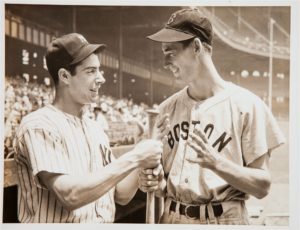
The 2017 MLB MVPs will be announced tomorrow (November 16) evening. Let’s look first at the AL candidates: the Yankees’ Aaron Judge (who earlier this week took Rookie of the Year honors), the Astros’ José Altuve and the Indians’ José Ramírez. (As I mentioned yesterday, a case could be made for the Indians’ ace and Cy Young winner Corey Kluber to be MVP, but he was not a finalist.) In a season that saw a record number of home runs hit, Judge set a rookie record and led the the league with 52 — and this is why I don’t favor him. Clearly the balls were livelier and even guys who used to hit home runs in the single digits were slugging over 20 this year. Judge also led the Majors in strike outs. No disrespect to Ramírez, but Altuve was the best position player in the American League. He led the Majors with a .346 batting average, had 204 hits, stole 32 bases, scored 112 runs and was stellar on defense. Altuve is possibly the best all-around player in baseball. He deserves the award and I expect he will win it.
The NL finalists are the Marlins’ slugger Giancarlo Stanton, the Diamondbacks’ Paul Goldschmidt, and the Reds’ Joey Votto. Only Goldschmidt’s team made the postseason, and his 36 home runs and 120 RBIs were a big reason (as were teammate J.D. Martinez’s 45 round-trippers). Old-style MVP voting would probably result in his winning the trophy. But Stanton and Votto actually had better stats. Stanton (currently the most coveted trade-bait in baseball) led the Majors with 59 home runs and 132 RBIs, and some of those homers traveled very long distances. Assuming he’s not using PEDs, that is one heck of a great season. Yet Joey Votto, with a mere 36 home runs and 100 RBIs, is in a near-statistical tie with Stanton in terms of Wins Above Replacement (WAR), based on the Baseball Reference measure. Votto put together another masterful season, leading all of baseball with a .454 on-base percentage (39 basis points higher than the next-best in the NL), started all 162 games of the season, had 134 walks and played stellar defense at first base. Votto is widely acknowledged as the smartest hitter and the toughest out in baseball, and if it were up to the pitchers, he would win the MVP. (He’s also my favorite hitter to watch.) I would add that a case could be made for a couple of Nationals — Anthony Rendon and Ryan Zimmerman — for the MVP honor, since they clearly contributed to their team’s great season, but neither was a finalist.
In the NL, I predict the writers will go with Stanton, although for his all-around play and masterpiece of a season, my personal pick would be Votto.
I seem to be the only one of my friends following this, but if you have an opinion, I’d love to read it.


